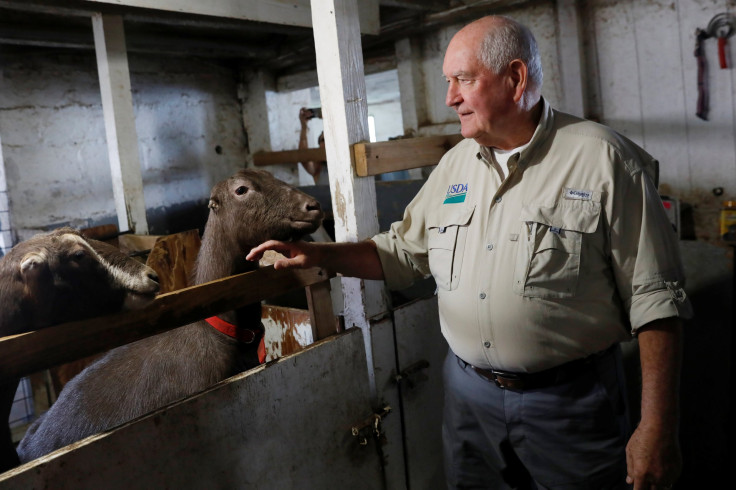US Agriculture's Perdue Says Farmer Aid Could Be Less Than First Estimated

The U.S. Department of Agriculture's $12 billion package to offset farmers losses from the imposition of tariffs American exports could end up shrinking after an agreement to update NAFTA was struck, Agriculture Secretary Sonny Perdue said on Tuesday.
"We will be recalculating along as we go," Perdue said in a phone interview with Reuters, regarding the second tranche of the planned compensation, estimated at about $6 billion, which was first announced in July after U.S. and China imposed trade tariffs on each others imports.
China has traditionally been the biggest buyer of U.S. agriculture exports but it has been largely out of the market for several products, such as soybeans, since implementing levies on U.S. imports in retaliation for the Trump administration's tariffs on Chinese goods.
The aid package includes cash payments for farmers of soybeans, sorghum, corn, wheat, cotton, dairy and hogs. TheUSDA had already outlined the allocations for the first $6 billion at the end of August.
Perdue said the picture has changed after the United States-Mexico-Canada Agreement (USMCA) was reached, a revamp of the NAFTA trade agreement between the three nations.
"If the tariffs do come off and the tariff impact lessens it will have some impact over the mitigation efforts because mitigation efforts were based on the fact that they would be tariff damage related," he said.
American farmers have yet to see the full benefit of the new accord as an ongoing dispute over steel and aluminum tariffs mean they still face retaliatory measures when trading with Canada and Mexico. That agreement also does not address the harm as a result of the trade war with China.
In late May, the Trump administration announced tariffs of 25 percent on steel imports and 10 percent on aluminum imports, prompting retaliation from top trading partners including Canada and Mexico.
Perdue said talks to remove the steel and aluminum tariffs were just beginning.
"The President feels tariffs have been very instrumental in getting Canada to the negotiation table. Now that we have an agreement, I believe their usefulness regarding those two countries have diminished and I think we should go back to our prior relationship of no tariffs on steel and aluminum," he said.
(Reporting by Humeyra Pamuk; Editing by Peter Cooney)
-Reuters
© Copyright Thomson Reuters {{Year}}. All rights reserved.





















